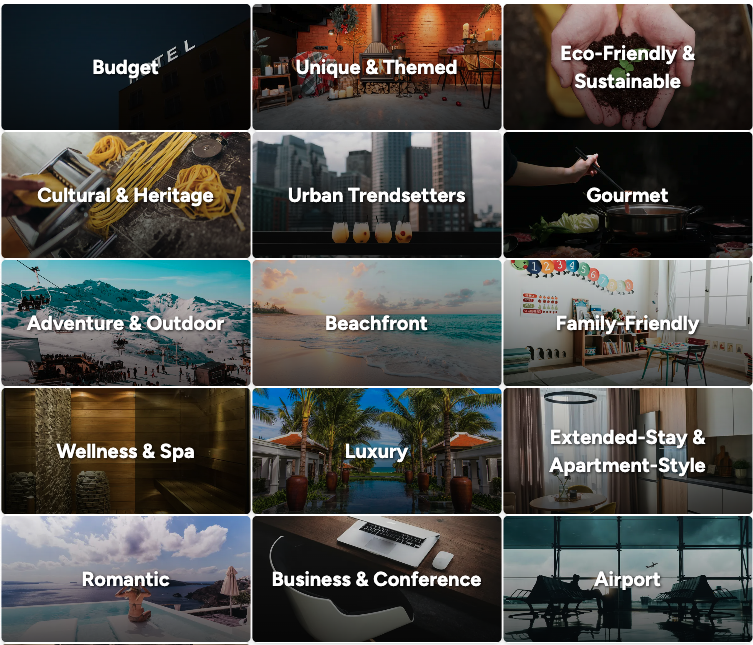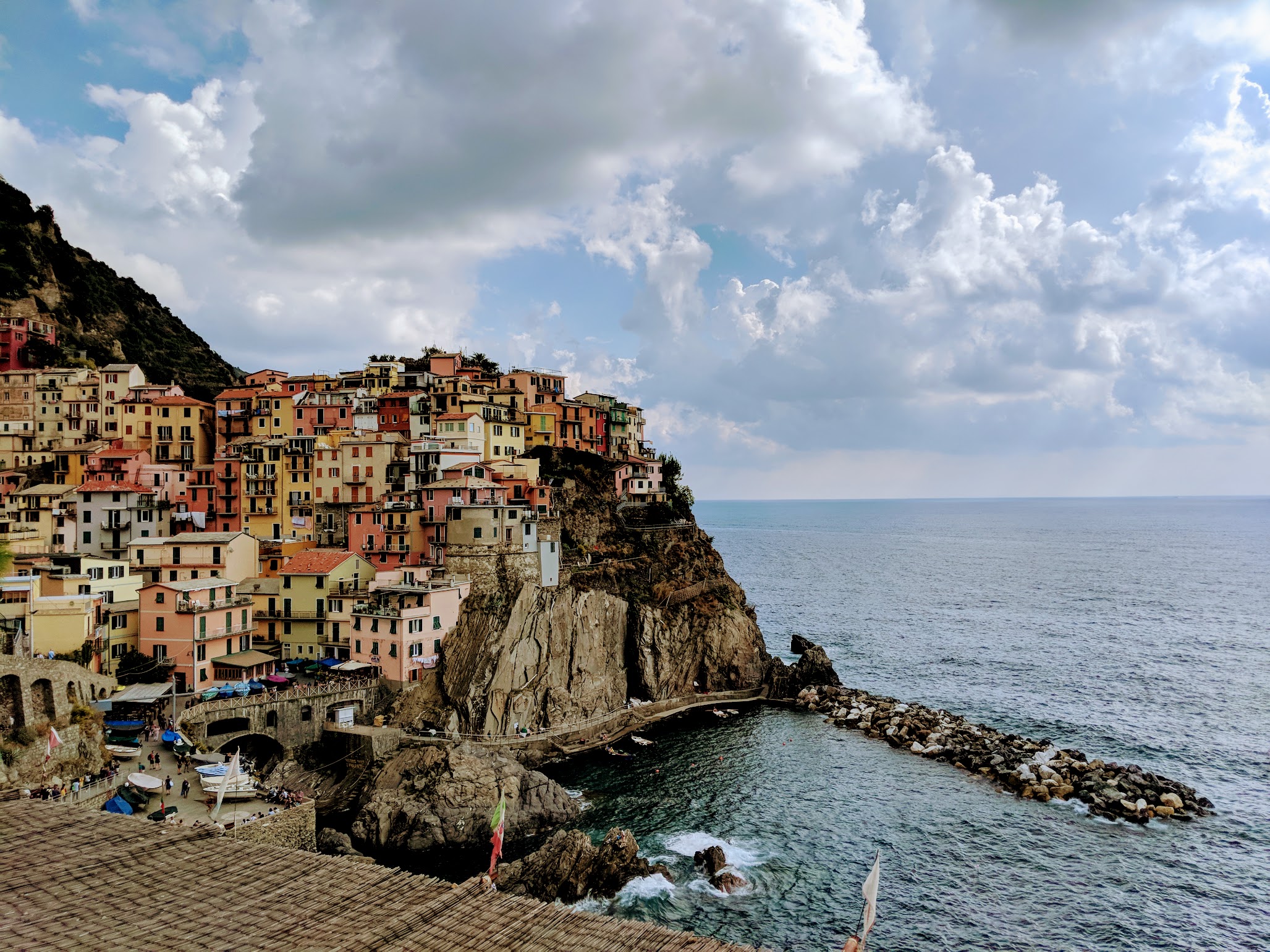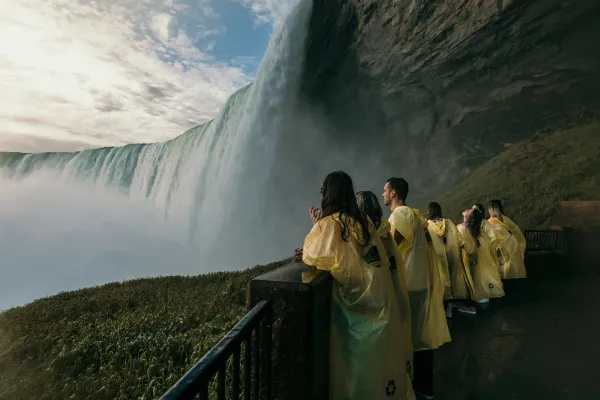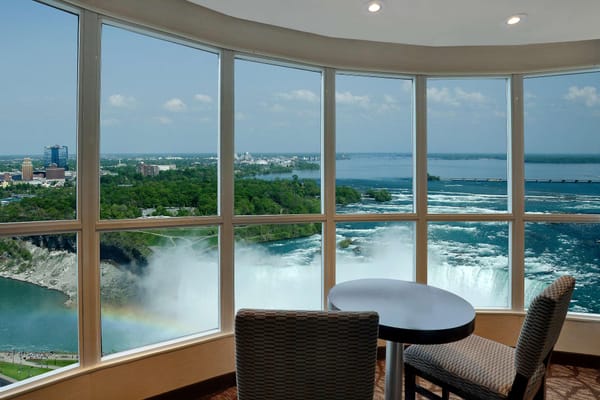Why Hotel Stars Mislead Every Traveler

Think about the last time you booked a hotel based on its star rating and felt completely misled by the actual experience.
Star ratings have a fundamental flaw. They measure operational features and amenities, not the actual experience travellers seek.
The problem runs deeper than inconsistent standards. Star ratings create a false hierarchy where five stars automatically means "better" than three stars, regardless of what you actually need from your trip.
The Detective Work Problem
When I was planning a trip to Portugal, I spent hours researching hotels in Lisbon and Porto. Every property looked identical through the lens of star ratings.
I had to research each city first, then match that knowledge with the vibe I wanted for my trip. But booking sites should already know this information and help travellers find the right match.
That frustration led me to build Hotelwise with a category-based approach instead of star-focused results. The difference in user behaviour was striking.
When I tested two versions of hotel search results, travellers using the traditional star-rating view clicked into individual hotel pages 75% more often. They were doing detective work, digging through amenities and descriptions to understand what type of experience each property offered.
Despite all that extra research, 30% fewer travellers reached the checkout page compared to those who could see hotel categories upfront.
Why Categories Tell the Real Story
The data reveals what star ratings miss. Travellers aren't looking for generic quality markers. They're trying to match their specific trip needs with the right hotel experience.
Consider someone searching for "Extended-Stay & Apartment-Style" accommodations. They value laundry facilities, kitchenettes, fridges, and dishwashers. A four-star rating tells them about room size, concierge service, and 24/7 reception.
Those are completely different value propositions solving different traveler problems.
The same disconnect happens across every hotel type. "Urban Trendsetters" and "Cultural & Heritage" properties might share identical star ratings while targeting completely different traveler mindsets and preferences.
Smart boutique hotels have figured this out. Many deliberately avoid star ratings because they offer such individualized experiences that standardized metrics become meaningless.
The Relativity of Better
Star ratings assume "better" is universal. Five stars beats four stars beats three stars, regardless of context.
But quality perception depends entirely on the traveler and their trip purpose. A business hotel downtown is perfect when I'm traveling for a conference. The same property would be terrible for a family vacation where I'd prefer beachfront access and tourist attractions.
I've seen this play out in Hotelwise's category rankings. Within each category, hotels earn higher placement based on how many relevant amenities they offer. A pet-friendly hotel that allows both small and large dogs for free ranks above one that charges fees or has size restrictions.
The ranking system creates degrees of category fit rather than arbitrary quality hierarchies.
How Travellers Actually Think
People don't just have unique preferences. The same person needs different things on different trips.
You might be a business traveler on Monday, a romantic weekend planner on Friday, and a family vacation booker next year. Each trip requires different amenities, locations, and experiences.
Traditional booking sites ignore this reality. They present the same star-rating hierarchy regardless of trip context.
Categories acknowledge that travellers are multifaceted. Our platform includes many categories with each connecting directly to specific trip motivations and practical needs.
The Learning Curve Reality
Most travellers have been conditioned for decades to think more stars equal better hotels. When they first encounter category-based search, there's a brief learning period.
Some people scroll through various categories to familiarize themselves with the new approach. Others immediately grasp the concept and quickly find their ideal category.
The key is showing relevant amenities for each hotel within its category. When travellers see exactly why a property fits "Wellness & Spa" or "Adventure & Outdoor," the value becomes obvious.
Modern travellers are already moving beyond star ratings. More than half of European consumers say they're influenced by online reviews and ratings, while only two in five consider star ratings when booking.
What This Means for Your Next Trip
The next time you're booking a hotel, start with your trip purpose instead of star ratings.
Ask yourself what type of experience you're seeking. Are you planning a romantic getaway, a business conference, a family adventure, or a wellness retreat?
Look for booking platforms that organize hotels by these meaningful categories rather than generic quality metrics.
Pay attention to specific amenities that matter for your trip type. A three-star boutique hotel with the right vibe and location might deliver a perfect experience while a five-star business hotel in the wrong area could ruin your vacation.
The goal isn't finding the "best" hotel according to some universal standard. It's finding the perfect hotel for your specific needs and trip purpose.
Star ratings will always have geographic inconsistencies and arbitrary quality measures. Categories connect directly to what travellers actually care about.
I built Hotelwise because finding your perfect hotel shouldn't require a degree in travel detective work. When booking platforms understand that travellers are unique and trips have different purposes, everyone wins.
The industry can keep chasing higher star ratings. My focus stays on helping travellers find exactly what they're looking for, honestly and efficiently.
Because at the end of the day, the perfect hotel is the one that matches your trip, not the one with the most stars.





